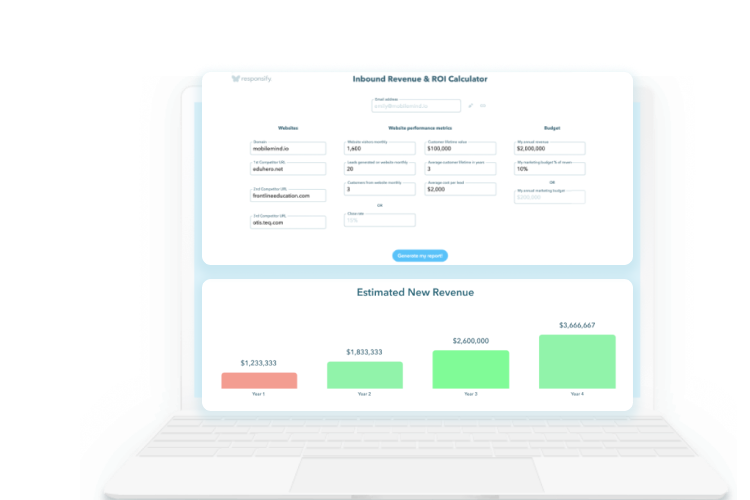 1,104 views
1,104 views 1911 Views
1911 Views  4 min read
4 min readWhat is “organic traffic?” Well, for starters, organic traffic isn’t a swarm of people milling around the farmer’s market on a Saturday morning. No. Wrong organic, wrong traffic. When we talk about organic traffic, we’re talking about drawing health and medical professionals to your company’s website – without spending a dime on Google+ AdWords or Facebook ads. Sound like wishful thinking? Well, it isn’t. It’s the power of Inbound Marketing. This is complex methodology, but the process of acquiring organic traffic, the part we’re going to talk about here, is known as the “attraction phase.” And it’s aim is to attract the right visitors to your website at the right time by using the right content.
Each of your ideal customers is going to be facing their own challenges. And they are increasingly turning to online resources for answers. You can find your ideal customers discussing their pain points in specialized groups on Facebook and LinkedIn, or posting questions on Quora.com or other forums. To find their forums, try searching BoardReader.com. Once you’ve found the problems plaguing them, get straight to work. Create blog posts that offer solutions to the obstacles they’re facing – especially the obstacles your Electronic Health Record (EHR) software company can solve. And don’t limit your electronic medical record content to traditional blog post formats. Check out the guides created by Marketo for ideas on crafting the epic content your ideal customers desire.
Writing electronic medical record content is one thing. Ensuring your ideal customer finds it is another thing entirely. Long-tail keywords are the flashing lights that will drive the traffic to your website. So, avoid the obvious keywords like “digital medical records.” Every provider in your industry is already trying to optimize for them. Instead, focus your keyword research on more specific phrases. For example, you might want to pay attention to phrases like “how to reduce medical billing paperwork.” There’s a chance fewer companies are competing for these long-tail keywords, and optimizing your electronic medical record content for them could improve your Google ranking.
Become a part of the online hotspots your ideal customers are already visiting. By contributing articles to reputable health-related sites in your niche, your company earns exposure to a large audience of potential organic traffic. Most websites allowing contributor posts also allow you to link back to your company’s website and social media. And Google likes to see these backlinks when deciding how to rank your company. Caveat – having your submissions accepted by a reputable site isn’t always easy. But keep trying. Whatever you do, don’t make the mistake of contributing to low-quality. This can have quite the opposite effect, devaluing how your company appears to potential clients.
While the backlinks we talked about are great, they aren’t everything – even if many marketers seem to think they are. You can leverage your own internal linking for awesome results. It optimizes your SEO and encourages visitors to spend more time on your company’s website. So, whenever you post new electronic medical record content, ensure that you are taking advantage of any opportunities for linking to related existing content.
How important are images? According to marketing guru Jeff Bullas, including images with your blog posts could generate up to 94% more views. And you can improve SEO by optimizing images:
By now, you’ve probably gathered that backlinks are a good thing for SEO. They are. But not all links are created equal. Backlinks from low-quality or blacklisted websites can harm your SEO and lower your ranking. So, it’s important that you regularly audit your backlinks for the following:
You should answer “yes” to each of those questions. And move quickly to eliminate any for which the answer is “no.” Contact the site’s webmaster via email to request the negative backlink be eliminated from their site. And continue sending those emails until they comply. If you can’t get the webmaster’s cooperation, report the problem using the Google Disavow Tool.
Every piece of electronic medical record content you post to your company’s website must include obvious buttons for sharing to social media. It goes without saying, but when health professionals share your content to social media, they are exposing your company to a lot more organic traffic. And take the time to regularly update your company’s social media. If you aren’t regularly posting to social media, your account appears neglected.
As the old marketing adage goes, “Whatever can be measured can be improved.” SEO is no exception. You should be monitoring your organic traffic on a monthly, or – better yet – weekly basis. SEO improvement is an ongoing process. So identify what is working and what is not. To make tracking a breeze, consider one of the following tools:
As we mentioned earlier, attracting organic traffic is only one component of the Inbound Marketing methodology. Equally important are the processes for converting your newfound traffic to qualified leads, and nurturing those leads into satisfied customers. That can all sound a little a daunting. But that’s where we at Responsify come in. We partner with Electronic Health Record (EHR) software marketers to develop custom strategies, and to offer the support and guidance they need to implement Inbound Marketing. We have worked with countless marketing managers to help them succeed with this methodology, and we’ve love to spend some time with you, too. Request your free strategy session now.
